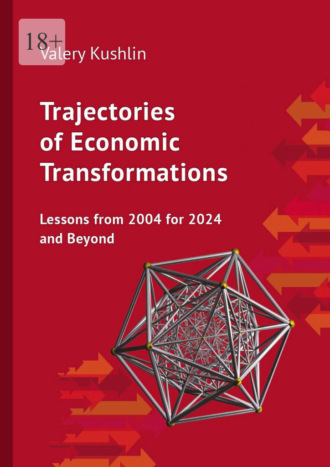Trajectories of Economic Transformations. Lessons from 2004 for 2024 and Beyond

Полная версия
Trajectories of Economic Transformations. Lessons from 2004 for 2024 and Beyond
Язык: Английский
Год издания: 2024
Добавлена:
Настройки чтения
Размер шрифта
Высота строк
Поля
Конец ознакомительного фрагмента
Купить и скачать всю книгу
